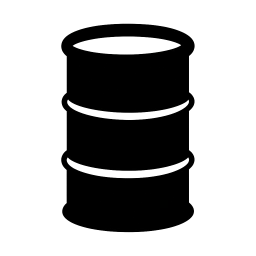Mastering the complexities of oil brokerage, whether as a professional broker or a serious investor/trader, requires a deep combination of market expertise, analytical skills, and strong relationship-building.
Here is a comprehensive roadmap to mastering the oil brokerage business:
1. Build a Foundation of Market and Product Knowledge
You must understand the commodity itself, the infrastructure that moves it, and the forces that price it.
- Understand the Physical Product:
- Crude Oil Benchmarks: Master the differences between West Texas Intermediate (WTI) (U.S. benchmark) and Brent Crude (global benchmark), including their API gravity (lightness) and sulfur content (sweetness/sourness), which determine their value.
- The Supply Chain: Understand the flow of oil from Upstream (exploration and production), to Midstream (pipelines, storage, and shipping), to Downstream (refining and retail).
- Master Market Drivers (Fundamental Analysis):
- Geopolitics & OPEC+: Track production quotas set by OPEC and its allies, as these decisions can instantly move prices. Be keenly aware of political instability, sanctions, and conflicts in major oil-producing regions.
- Inventory Reports: Closely monitor weekly reports from the U.S. Energy Information Administration (EIA), as changes in crude oil stockpiles are a major short-term price catalyst.
- Global Economics: Recognize how overall economic growth, interest rates, and the value of the U.S. Dollar influence energy demand.
2. Master the Trading Instruments
A successful oil broker or trader must be fluent in the financial tools used to transact and manage risk.
| Instrument | Description | Primary Use | Risk Level |
| Futures Contracts | An agreement to buy or sell oil at a specific price on a future date (e.g., WTI on NYMEX, Brent on ICE). | Physical Hedging (by producers/refiners) and Aggressive Speculation. | High (Highly leveraged) |
| Options | Gives the right, but not the obligation, to buy (Call) or sell (Put) a futures contract. | Hedging and Speculation with defined risk (premium paid). | Moderate-High |
| Swaps and CFDs | Over-the-counter agreements or contracts for difference used to speculate on price movement without physical delivery. | Price Risk Management and Retail Trading (for CFDs). | Varies |
| Forward Curve Dynamics | Understand Contango (future price > current price) and Backwardation (future price < current price), which are crucial for storage economics and trading strategy. | Storage and Arbitrage strategies. | High |
3. Develop Essential Skills and Professional Practice
Mastering the business is as much about skill and compliance as it is about knowledge.
Analytical and Technical Skills
- Technical Analysis: Utilize chart patterns, moving averages, and technical indicators to identify short-term entry and exit points.
- Data Proficiency: Be highly proficient in Excel and data analysis tools. Familiarity with programming languages like Python is increasingly valuable for quantitative analysis and modeling.
- Trading Platform Fluency: Be an expert user of industry platforms like Bloomberg Terminal or comparable real-time data systems.
Brokerage and Soft Skills (For Professional Brokers)
- Communication & Negotiation: The core of brokerage is effectively conveying complex market information and securing deals. You must be able to negotiate favorable terms quickly and confidently.
- Relationship Building: Success hinges on building deep trust and maintaining strong relationships with clients (producers, refiners, airlines, and financial institutions).
- Compliance & Ethics: Rigorously adhere to regulatory frameworks (like the CFTC in the U.S.). Market manipulation tactics (e.g., spoofing or wash trading) are illegal and career-ending.
Risk Management
- Discipline: Never risk more than you can afford to lose.
- Stop-Loss Orders: Implement strict stop-loss orders to automatically liquidate a losing position and limit your exposure to the oil market’s extreme volatility.
- Position Sizing: Carefully calculate the appropriate lot size or position to ensure a single trade does not threaten your entire capital base.
4. Seek the Right Experience and Education
A career in oil brokerage or trading typically requires a structured path.
Continuous Learning: The energy transition and new geopolitical factors mean the market is always changing. Enroll in specialized commodity trading courses and certifications to stay current. can include data, anecdotes, or expert opinions to reinforce your claims. Keep your language concise but descriptive enough to keep readers engaged. This is where the substance of your article begins to take shape.
Education: A degree in a quantitative field such as Finance, Economics, Engineering, or Mathematics provides the best foundation.
Entry Point: Many successful traders start in junior or support roles in logistics, operations, or market analysis within an energy company or a trading house before moving to a direct trading or broking desk.




Leave a Reply